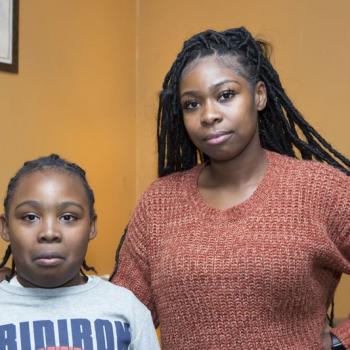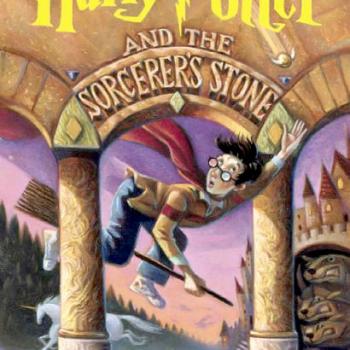A fascinating glimpse into modern education, from Ocala, Florida:
Biology teacher Cheryl Tomlinson looked at her Trinity Catholic High School class and challenged her students to find interesting facts about adenosine triphosphate (ATP).
Last year, many students would have had to thumb through their textbooks — or maybe used a laptop, if they had one — to find information about ATP. Research on ATP, which transports chemical energy within cells, is part of their photosynthesis instruction.
But this year, there are no textbooks. All of Trinity Catholic’s nearly 600 students use iPads, or some type of tablet, to access their textbooks in a cloud, or other Web-based site.
Parents must provide the devices, unless the child qualifies for assistance. The school leases some devices, or even loans them, to students as needed.
An anonymous benefactor donated $500,000 to install the latest wireless technology at the school, including three signal towers and 125 routers, or what are known as “arrow hives.”
No matter where you go on campus, a student or teacher can access the Internet. Students waiting to practice after school can read homework assignments on their iPad while sitting in the football stands, for instance.
Last year, parents had to pay $600 for each child’s textbooks. This year, the cost is a $350 technology fee. Most of Trinity’s electronic textbooks are about 30 percent of the cost of traditional ones, officials said.
David L. McKenzie, Trinity Catholic’s president, said most schools still operate like those of a century ago, with traditional textbooks and a chalkboard. McKenzie said officials felt it was time to utilize technology, more like college campuses do today.
McKenzie noted that once a traditional textbook is created, it takes a year or two for it to be edited and ready to distribute. By then, the information is two to three years old. The Internet books can be updated daily, he said.
“Students are learning about the latest conflicts in the Middle East,” whereby last year the latest conflict a Trinity student may have studied could have been Desert Storm, McKenzie said.
“The (electronic) textbooks are more interactive, too,” said Lou Pereira, Trinity Catholic’s principal. “This is the world that students live in.”
McKenzie noted that “by the time our freshmen go to college, there will be no more (physical) textbooks.” School officials want to get students ready for what they will face in college.











